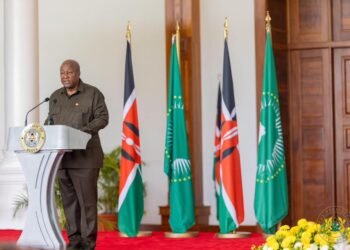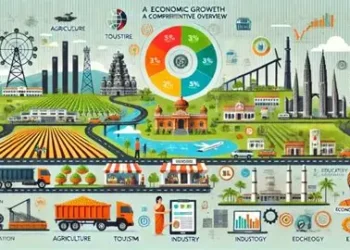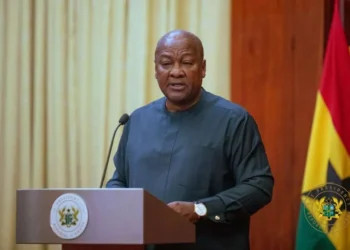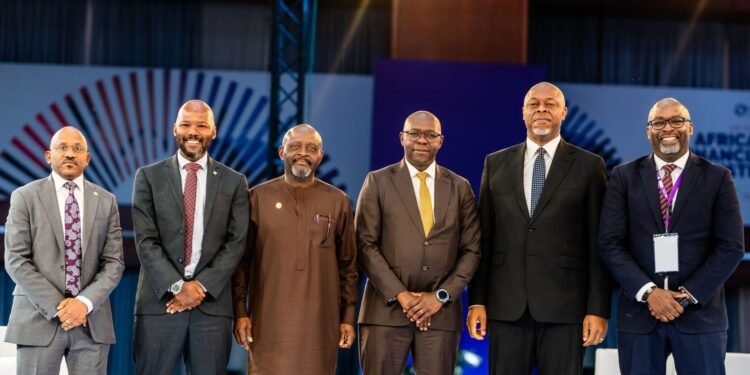The World Bank’s 2025 Global Findex Report has shed new light on the rapid evolution of digital borrowing in Ghana, revealing that 22% of adults now borrow directly from mobile money providers.
This marks a significant shift in the country’s financial landscape, illustrating how fintech is redefining access to credit, especially in traditionally underserved populations.
According to the World Bank, 74% of borrowers in Ghana are considered formal borrowers, a classification that includes borrowing through mobile money platforms, banks, and other regulated institutions.
The report attributes a notable portion of this formal borrowing increase to the rise in mobile money-based credit between 2021 and 2024, highlighting mobile financial services as a critical driver of financial inclusion in Ghana. “In Ghana, the rise in borrowing through a mobile money account between 2021 and 2024 drove an overall increase in formal borrowing over that period,” the report explained.
Gender Disparity Persists in Mobile Money Lending
Despite the overall positive trend, the report flags an important issue: gender disparities in access to mobile money borrowing. In Ghana, women are 4 percentage points less likely than men to borrow from mobile money platforms. While this gap is less severe than those in Kenya (16 percentage points) and Uganda (13 percentage points), it still underscores ongoing inequalities in digital financial access.
This gender gap may be attributed to multiple factors, including lower smartphone ownership among women, digital literacy barriers, and socio-cultural norms that inhibit women’s financial autonomy.
Beyond gender, economic disparity also plays a significant role in mobile money borrowing patterns. The report reveals that similar gaps exist between adults in the poorest 40% of households and those in the wealthiest 60%. This suggests that while mobile money borrowing has democratized access to some degree, structural inequalities in income distribution remain deeply entrenched in Ghana’s financial system.
These disparities raise concerns about the sustainability and inclusiveness of the digital credit revolution. If low-income individuals face greater barriers in accessing or repaying digital loans, the very platforms designed to empower them could inadvertently deepen financial exclusion.
A New Era of Digital Credit: Beyond Mobile Money Accounts
One of the most significant innovations in the 2025 Global Findex Report is its expanded definition of digital credit. For the first time, the survey distinguishes between borrowing via mobile money accounts and borrowing through other digital means via mobile phones—a subtle but important distinction.
The findings indicate that 1% of adults in low- and middle-income economies, and 3% of adults in Sub-Saharan Africa, borrowed exclusively through a mobile phone without using a mobile money account, bank, or credit card. Though small in percentage terms, this group is indicative of a growing trend of unregulated or alternative digital credit platforms.
Interestingly, all seven economies globally in which at least 5% of adults reported borrowing through mobile phones—but not formally—are located in Sub-Saharan Africa. While these new forms of credit offer speed and convenience, their informal nature raises questions about transparency, consumer protection, and over-indebtedness.
Ghana’s Fintech Boom: Opportunity or Risk?
The rise in mobile money borrowing in Ghana reflects broader trends across Sub-Saharan Africa, where mobile financial services have leapfrogged traditional banking systems. Ghana’s mobile money penetration rate is among the highest in the region, and innovations in lending are quickly following suit.
However, as more Ghanaians turn to mobile platforms for credit, regulatory bodies will need to address gaps in oversight and ensure that consumer protection mechanisms are in place. The growth of digital borrowing must be matched by efforts to educate users, especially vulnerable groups, on responsible credit usage and the risks of default.
Furthermore, there is a growing need to design gender-sensitive and income-sensitive lending models that can bridge the gaps identified in the report. Financial inclusion should not merely be about expanding access—it must be about equitable, safe, and sustainable participation in the financial system.
As mobile borrowing continues to expand, stakeholders—from fintech companies to policymakers—must work collaboratively to build a responsible credit ecosystem that supports long-term financial health for all Ghanaians.
READ ALSO: Ghana’s Cocoa Export Volumes Plunge by 50% Despite Revenue Surge in 2024 – Auditor General Report























